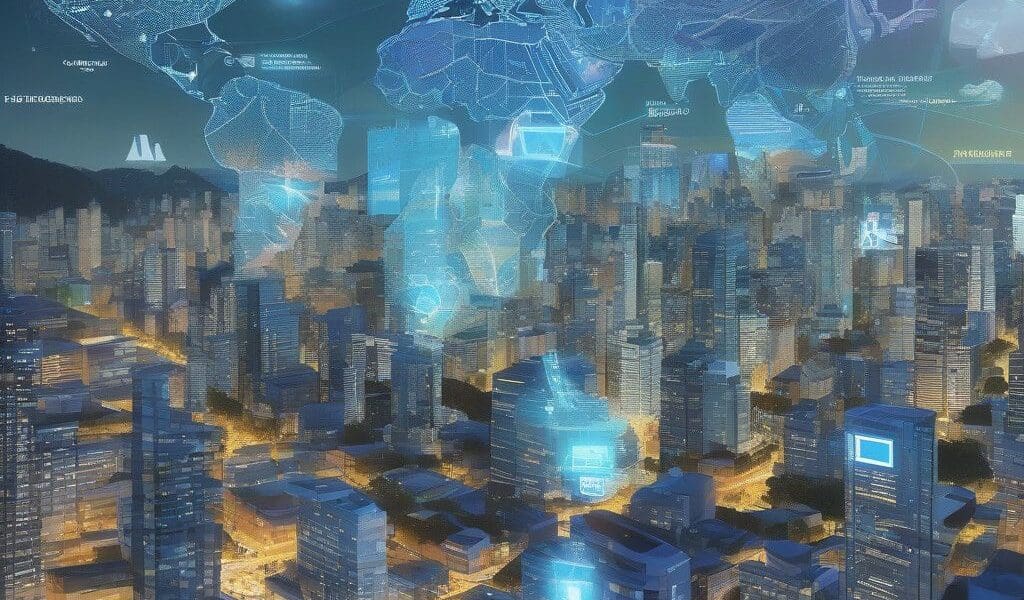Brazil to Benefit from Major $2.7 Billion Microsoft AI Investment
Microsoft has announced a significant investment of $2.7 billion aimed at enhancing artificial intelligence (AI) and cloud infrastructure in Brazil. This financial injection, which is set to roll out over the next three years, is anticipated to have a profound impact on the Brazilian economy, positioning the country as a major player in the tech industry.
The driving force behind this investment is Microsoft’s “Mais Brasil” initiative, established in 2020. The project underscores the company’s long-term commitment to technological advancement in Brazil, focusing on workforce development and innovation. Under this initiative, the tech giant plans to bolster data centers and equip 5 million individuals with skills in AI, positioning them for future job opportunities in an increasingly digital world.
Impact on Brazil’s Economy
The implications of Microsoft’s investment are considerable. Experts predict that AI could contribute an estimated 4.2 percentage points to Brazil’s GDP growth by 2030. By extending this investment, Microsoft not only reinforces its own cloud and AI capabilities but also catalyzes economic growth, fosters technological innovation, and supports job creation in Brazil.
The Brazilian Vice President, Geraldo Alckmin, praised the partnership, asserting that the country is well-positioned to emerge as a global leader in AI, particularly due to its rich renewable energy resources that will power the new data centers. This synergy between technology and sustainability could potentially pave the way for future innovations in environmental conservation.
Microsoft’s Commitment to Accessible Technology
CEO Satya Nadella emphasized the necessity of making AI benefits universally accessible across all sectors of Brazilian society. This commitment underlines a critical recognition: as technology advances, it is essential to ensure that growth does not solely benefit a select few. Microsoft’s vision includes training programs aimed at equipping a diverse range of Brazilian citizens with essential tech skills, fostering inclusivity in this digital transformation.
The potential to upscale the workforce could significantly level the playing field, offering opportunities for communities that historically might have been left behind in the tech revolution. Such educational initiatives can reduce skill gaps while providing local talents with tools and knowledge to thrive in a technology-driven economy.
Focus on Cloud Computing and AI Infrastructure
This investment strategically aligns with the global trend toward advanced technology solutions that integrate AI and cloud computing into everyday business operations. Microsoft is not unique in its focus; numerous companies are increasingly recognizing the transformative power of these technologies to enhance operational efficiency and drive economic growth.
Countries and corporations around the globe are actively modernizing infrastructure as part of ambitious digital strategies. Brazil’s focus on AI aligns with this global movement, showcasing how nations can leverage technology as a cornerstone for economic development.
Moreover, with Brazil being a pivotal hub in South America, this investment is set to enhance its role in the regional tech landscape. As global digital services continue to expand, Brazil’s advanced infrastructure could attract more multinational companies and tech startups looking for a foothold in Latin America.
Conclusion
Microsoft’s $2.7 billion investment in Brazil signifies a monumental advancement not only for the company but for the entire Brazilian economy. By enhancing AI infrastructure, creating training programs, and fostering inclusive growth, Brazil stands to benefit significantly from this commitment to technological innovation. As other nations observe this development, it may very well inspire similar strategies worldwide, reinforcing the notion that investing in technology and education can yield substantial returns for both businesses and communities.








